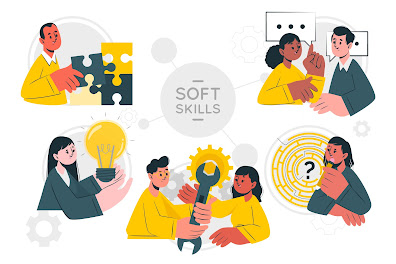How to Apply Level 3 CAVA Skills in Different Vocational Settings
Understanding Level 3 CAVA
The Level 3 Certificate in Assessing Vocational Achievement (CAVA) equips individuals with the skills needed to assess vocational competencies in various settings. This qualification is essential for professionals involved in training and assessing learners, ensuring they meet specific standards.
What is Level 3 CAVA?
Level 3 CAVA is a certification that focuses on assessing occupational competence in work environments. It is designed for practitioners who assess knowledge and skills in vocational contexts. The course covers principles and practices of assessment, planning assessments, conducting assessments, and quality assurance.
Why is Level 3 CAVA Important?
Level 3 CAVA is crucial because it ensures that assessors are competent and can evaluate learners effectively. This certification guarantees that learners achieve the required standards, contributing to high-quality vocational education and training.
Applying CAVA Skills in Various Vocational Settings
Healthcare
In healthcare, Level 3 CAVA skills are vital for assessing the competencies of healthcare professionals, such as nurses and healthcare assistants. Assessors ensure that these professionals meet the required standards for providing safe and effective care.
How are CAVA Skills Used in Healthcare?
- Clinical Assessments: Assessors observe and evaluate clinical practices to ensure compliance with healthcare standards.
- Skill Verification: Practical skills, such as administering medication or performing patient assessments, are assessed to guarantee proficiency.
- Continuous Professional Development: Assessors help in identifying areas for further training and development, ensuring ongoing competency.
Construction
The construction industry relies on competent workers to maintain safety and quality. Level 3 CAVA skills are essential for assessing the competencies of tradespeople, such as carpenters, electricians, and plumbers.
How Do CAVA Skills Benefit Construction?
- On-Site Assessments: Assessors evaluate the practical skills of workers on-site to ensure they adhere to safety regulations and quality standards.
- Training Validation: Verification of completed training and apprenticeships ensures that workers are fully prepared for their roles.
- **Compliance Checks:** Regular assessments help in maintaining compliance with industry standards and regulations.
Hospitality
In the hospitality industry, assessing staff competencies is crucial for maintaining high service standards. Level 3 CAVA skills enable assessors to evaluate the performance of hotel staff, chefs, and other hospitality professionals.
How are CAVA Skills Applied in Hospitality?
- Customer Service Assessments: Evaluating staff interactions with customers ensures high service standards.
- Culinary Skills Evaluation: Assessors check the practical skills of chefs to maintain food quality and safety.
- Operational Competency: Assessing the knowledge and skills related to hospitality operations, such as front desk management and housekeeping.
Education and Training
Within educational institutions, Level 3 CAVA skills are used to assess the competencies of teachers, trainers, and other educational staff. This ensures that educators possess the necessary skills to deliver high-quality education.
How Do CAVA Skills Support Education?
- Teaching Assessments: Evaluating teaching methods and classroom management to ensure effective learning environments.
- Curriculum Implementation: Assessing the delivery of curriculum content to maintain educational standards.
- Professional Development: Identifying areas for improvement and further training for educators.
Overcoming Common Challenges
Resistance to Assessment
One challenge in applying CAVA skills is resistance from individuals being assessed. This can stem from anxiety or a lack of understanding of the assessment process.
How Can Assessors Address Resistance?
- Clear Communication: Explain the purpose and benefits of assessments to alleviate concerns.
- Supportive Environment: Create a supportive atmosphere where individuals feel comfortable and confident.
- Feedback Mechanisms: Provide constructive feedback to encourage improvement and development.
Keeping Up with Industry Changes
Industries are constantly evolving, and assessors must stay updated with the latest standards and practices. This ensures that assessments remain relevant and effective.
How Can Assessors Stay Updated?
- Continuous Learning: Engage in ongoing professional development to keep skills and knowledge current.
- Networking: Connect with other professionals to share insights and updates on industry changes.
- Industry Resources: Utilize industry-specific resources and publications to stay informed.
Related Questions
What are the Key Components of Level 3 CAVA?
The key components include understanding principles of assessment, planning assessments, conducting assessments, and quality assurance.
Who Should Pursue Level 3 CAVA?
Professionals involved in training and assessing learners in various vocational settings should pursue this certification.
How Long Does it Take to Complete Level 3 CAVA?
The duration varies but typically takes a few months to complete, depending on the learner's pace and prior experience.
What are the Benefits of Level 3 CAVA for Employers?
Employers benefit from having competent assessors who ensure that staff meet required standards, leading to improved performance and compliance.
How Can Level 3 CAVA Enhance Career Prospects?
Obtaining Level 3 CAVA can open up career opportunities in various sectors as a qualified assessor, leading to career advancement and higher earning potential.
Conclusion
Applying Level 3 CAVA skills in different vocational settings is essential for ensuring that professionals meet industry standards and competencies. From healthcare and construction to hospitality and education, the ability to assess and verify skills is crucial for maintaining quality and safety. By overcoming challenges such as resistance to assessment and staying updated with industry changes, assessors can effectively apply their skills across various settings. Pursuing Level 3 CAVA certification not only enhances individual career prospects but also contributes to the overall quality and effectiveness of vocational education and training.

.jpg)


Comments
Post a Comment